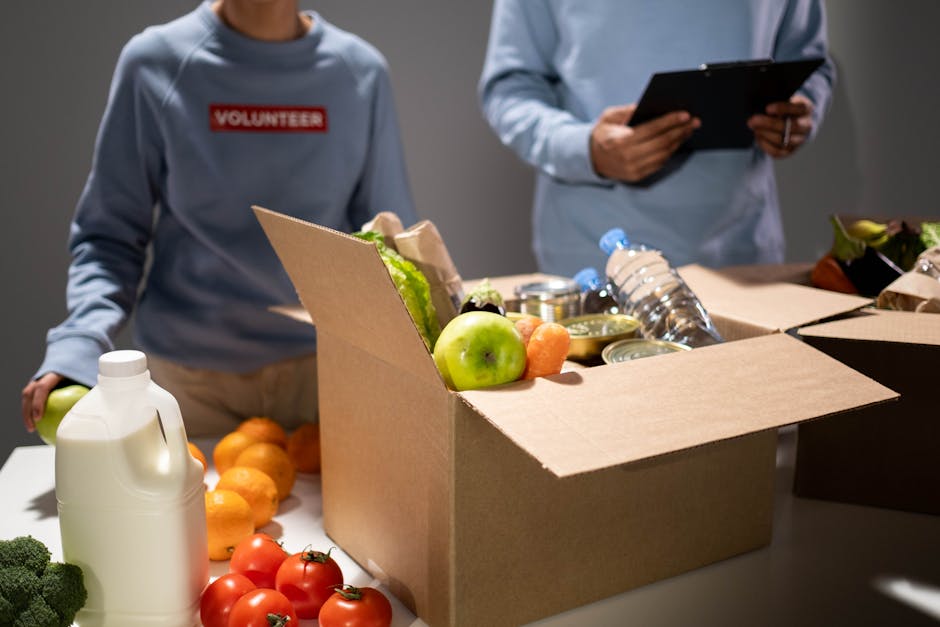**
In an ever-evolving world, where the demand for food is skyrocketing, ensuring 미래 식량 안보 has become a paramount concern. As global populations swell and environmental challenges mount, 대체식품 are emerging as a beacon of hope. This blog post delves into the intricacies of future food security and the pivotal role of alternative foods in shaping a sustainable future.
Why 미래 식량 안보 is Crucial Today
The notion of 식량안보 extends beyond mere access to food; it encompasses the availability, accessibility, and sustainability of nourishment for all. With climate change threatening traditional agriculture and resources becoming scarce, ensuring that future generations have sufficient food is more critical than ever.
Understanding the Current Challenges
Food security is intertwined with numerous global challenges:
- Climate Change: Extreme weather patterns are disrupting farming cycles.
- Population Growth: The global population is projected to reach 9.7 billion by 2050, increasing food demand exponentially.
- Resource Depletion: Water scarcity and soil degradation are making traditional farming less viable.
What are 대체식품 and Why are They Important?
Alternative foods, or 대체식품, are innovative products designed to replace or supplement traditional food sources. They are crucial for reducing the environmental footprint of food production and providing new avenues for nutrition.

Types of 대체식품 Revolutionizing the Market
Several types of alternative foods are gaining traction:
- 식물성고기 (Plant-Based Meat): Derived from plants, these products mimic the taste and texture of real meat, offering a sustainable alternative.
- 배양육 (Cultured Meat): Grown from animal cells in a lab, cultured meat promises a future of meat consumption without animal slaughter.
- 대체단백질 (Alternative Proteins): From insects to algae, diverse protein sources are being explored to meet dietary needs sustainably.
How 지속가능농업 Supports 미래 식량
지속가능농업, or sustainable agriculture, is pivotal in supporting 미래 식량. By employing practices that conserve resources and minimize environmental impact, sustainable agriculture ensures long-term food security.
Key Practices in Sustainable Agriculture
Adopting the following practices can help maintain ecological balance:
- Crop Rotation and Diversity: Enhances soil health and reduces dependency on chemical fertilizers.
- Water Management: Efficient irrigation and water harvesting techniques mitigate resource depletion.
- Renewable Energy Use: Reduces greenhouse gas emissions in farming operations.
푸드테크: The Intersection of Technology and Food
푸드테크, or food technology, is revolutionizing the way we produce, process, and consume food. From vertical farming to AI-driven food analytics, technology is at the forefront of creating a resilient food system.

Innovations Driving 푸드테크 Forward
Key technological advancements include:
- Vertical Farming: Maximizes space efficiency and reduces land use by growing crops in stacked layers.
- AI and Data Analytics: Enhances precision farming, optimizing crop yields and reducing waste.
- Blockchain for Traceability: Ensures transparency and safety across the food supply chain.
What Role Do 대체단백질 Play in Supporting Food Security?
대체단백질, or alternative proteins, are crucial for diversifying dietary sources and reducing reliance on traditional meat industries.
Benefits of Embracing 대체단백질
Integrating alternative proteins into diets offers numerous advantages:

- Environmental Benefits: Lower greenhouse gas emissions and reduced land use.
- Health Advantages: Often lower in saturated fats and calories compared to animal proteins.
- Economic Opportunities: New markets and job opportunities in sustainable food production.
Conclusion: The Future of Food Security and Alternative Foods
As we look toward the future, it is evident that ensuring 미래 식량 안보 requires a multifaceted approach. By embracing 대체식품, advancing 지속가능농업, and leveraging 푸드테크, we can build a resilient food system that supports both people and the planet. The integration of 식물성고기, 배양육, and 대체단백질 into mainstream diets will play a significant role in this transformation.
What do you think about the future of food security and alternative foods? Share your thoughts in the comments below or share this post with others interested in sustainable food solutions!
